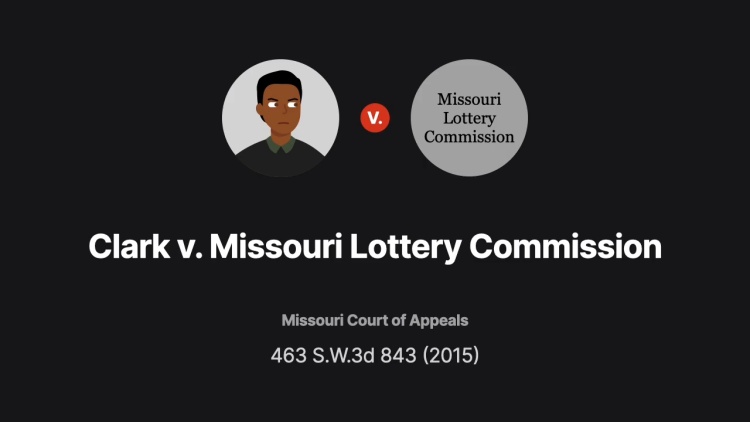Clark v. Missouri Lottery Commission
Missouri Court of Appeals
463 S.W.3d 843 (2015)
- Written by Alexander Hager-DeMyer, JD
Facts
Gary Clark (plaintiff) won the Missouri lottery, which entitled him to $50,000 per year for life, with a minimum payout of 30 years. Clark entered into a loan with Community Bank of El Dorado Springs (Community Bank) (defendant), granting the bank a security interest in the assignment of all Missouri lottery payments. Clark executed an agreement to have all his funds from the Missouri lottery deposited in an account with Community Bank for the purpose of securing payment of any debt of any type that Clark owed or would owe to Community Bank. The agreement stated that Community Bank had full authority and withdrawal rights on Clark’s account and that Clark could not revoke the agreement. The agreement contained an acknowledgement by the Missouri lottery. Clark later executed a second loan agreement with Community Bank, granting a security interest in his original agreement. Under the new loan agreement, Clark agreed to a specific payment plan, but he defaulted on the loan. Clark filed a petition for declaratory judgment in Missouri state court against Community Bank and the Missouri Lottery Commission (defendant), alleging that the loan agreements were void and unenforceable as unlawful assignments of lottery proceeds. The Missouri circuit court granted summary judgment in favor of Community Bank. Clark appealed the decision to the Missouri appellate court.
Rule of Law
Issue
Holding and Reasoning (Ellis, J.)
What to do next…
Here's why 907,000 law students have relied on our case briefs:
- Written by law professors and practitioners, not other law students. 47,100 briefs, keyed to 996 casebooks. Top-notch customer support.
- The right amount of information, includes the facts, issues, rule of law, holding and reasoning, and any concurrences and dissents.
- Access in your classes, works on your mobile and tablet. Massive library of related video lessons and high quality multiple-choice questions.
- Easy to use, uniform format for every case brief. Written in plain English, not in legalese. Our briefs summarize and simplify; they don’t just repeat the court’s language.





